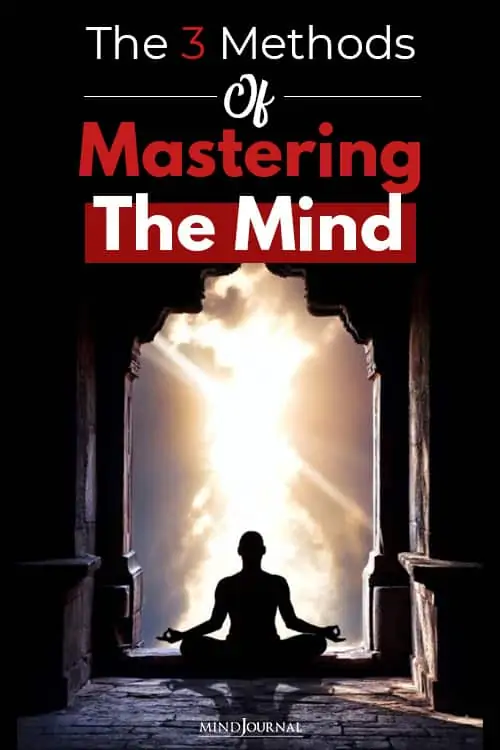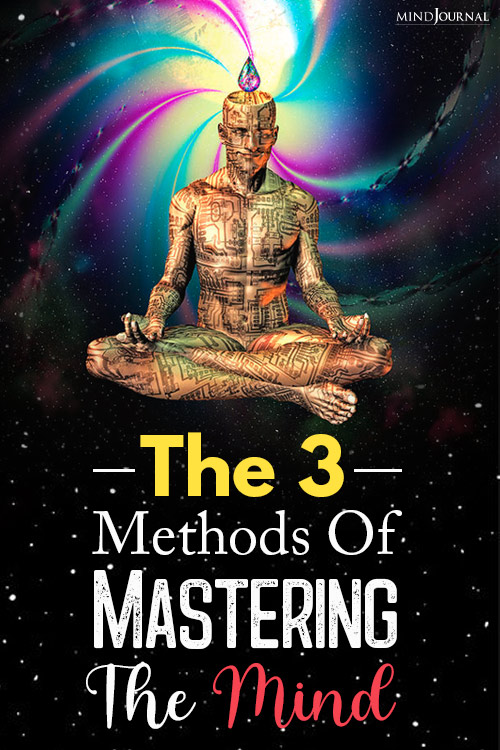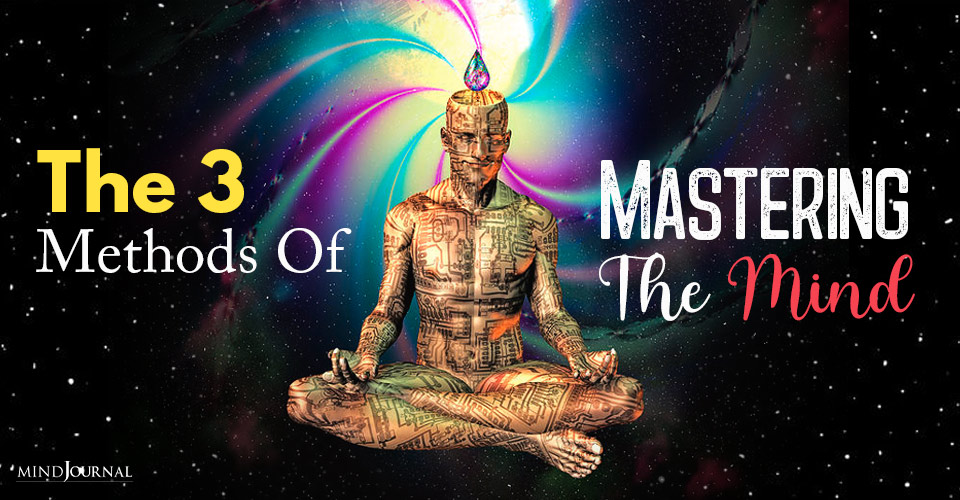Mastering the mind might seem intimidating, and challenging, but as long as you know which methods you should use, you will be able to do it successfully.
Masters of all kinds highlight the importance of cultivating stillness of mind. For most of us, our capacity for stillness is about that of a squirrel. So how do we succeed in our search for stillness?
Although I am an unwavering proponent of meditation, there are several paths to stillness.
So, while the following methods seem antithetical at first glance, remember that stillness follows the principle of equifinality: many methods will lead you to the same place. We’re going to discuss three main methods here.
Related: The Power of Intentions: Scientific Evidence on How Thoughts Can Change the World
Spoiler alert: all revolve around the core tenet of exposing ourselves to suffering, again and again.
Here Are 3 Methods Of Mastering The Mind
1. Meditation
Meditation is the single most powerful and reliable tool for attaining stillness of mind. The purpose of meditation is to augment your capacity for awareness; that is, the ability to simply sit within your conscious experience as an observer, rather than becoming embedded within it like the main character of a show. The latter is how most of us live our lives: entrenched in an identity, inundated by anxieties, insecurities, triggers, and incessant mental chatter.
It is crucial to note that the purpose of meditation is not to have “no thoughts”, or to be fully at peace, although peace is the ultimate destination. The goal of meditation is to become aware, and in so doing, stillness follows.
“Glimpses of love or joy or brief moments of deep peace are possible whenever a gap occurs in the stream of thought. For most people, these gaps happen rarely and only accidentally, in moments when the mind is rendered “speechless”… and within that stillness, there is a subtle but intense joy, there is love, there is peace.” – Ekhart Tolle

2. Pushing Past Physical Limits
When you are at the brink of your physical capacities, be it at the end of a long run, or at the end of a weightlifting session—there is very little energy left for mental noise. This tends to be why people go to the gym to “clear their head”, or engage in strenuous physical activities to elicit a state of peace and calm.
“The reason why some people love to engage in dangerous activities, such as mountain climbing, car racing, and so on, although they may not be aware of it, is that it forces them into the Now— that intensely alive state that is free of time, free of problems, free of thinking, free of burden of the personality.” – Ekhart Tolle
David Goggins refers to this as “callousing the mind”. I think that’s a great metaphor.
“We live in an external world. Everything, you have to see it, touch it. If you can for the rest of your life, live inside yourself – to find greatness, you have to go inside.” – David Goggins
3. Facing The Depths Of Despair
Experiencing a dark night of the soul is actually a fantastic thing. When you confront your darkest demons or lose someone you cherished more than life itself, or you are confronted with some other seemingly insurmountable barrier, you fall to the depths of human suffering.
Related: The Dark Night Of The Soul
And since the human spirit is unfailingly resolute, it will eventually pick you up off the ground. You will come out the other side, but you won’t be the same as before. You will be as internally solid as a rock, incapable of being perturbed by anything or anyone, not even your own mind.
“In some rare cases, [a] shift in consciousness happens dramatically and radically, once and for all. When it does, it usually comes about through total surrender in the midst of intense suffering. Most people, however, have to work at it.” – Ekhart Tolle
Check out Saba May’s website, Metta Human for more such informative articles.
Written By Saba May
Originally Appeared In Metta Human










Leave a Reply
You must be logged in to post a comment.